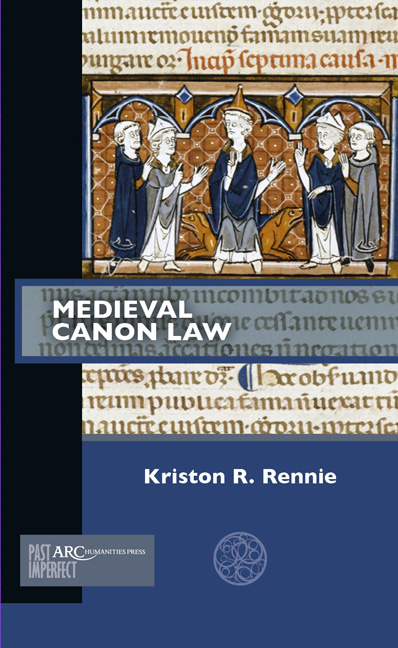Chapter 1 - The Master Narrative
Published online by Cambridge University Press: 27 January 2021
Summary
It seems fitting to begin where every historian must: with the sources. There is an undeniably rich historical and historiographical tradition on medieval canonistic figures, canonical collections, and their internal textual components and characteristics. This body of material includes thousands of medieval manuscripts (complete and partial), modern critical and uncritical editions and registers of canon law collections, electronic databases and translations, and a swathe of secondary literature in various languages from the seventeenth century to the present day. The internal texts are themselves constituent, early textual components of Christian history, namely Holy Scripture (Old and New Testaments), the writings of early Church Fathers (patristic literature), various church councils (acta, canons), and papal letters known as “decretals.” Many other ecclesiastical sources can be added to this list: episcopal registers, charters, capitularies, monastic cartularies and privileges/ immunities, in addition to existing narrative sources like medieval chronicles, histories, saints’ lives, and annals.
This vast ecclesiastical sourcebase can be difficult to navigate for the uninitiated reader. Its specialized disciplinary nature, and wholesale dependency on manuscript study and textual criticism, is challenging to access and understand. The historian needs to provide sufficient nuance and context to make the law meaningful. Great care must also be taken to make it palatable and readable, to ensure a renewed interest among younger generations of scholars, whose formal training is increasingly less legal and more historical in nature. Its narrative should always be positioned within the world in which it was created, examined on its own terms as more than a material outcome of institutional and/ or intellectual processes. In other words, medieval canon law must be studied as more than an evolutionary outcome of modern legal activity.
Simply put: the history of medieval canon law is about more than just legislation. There is an obvious irony to this statement. Indeed, understanding the formation of a western legal tradition demands a sound knowledge of its structures, influences, rationale, precedents, and patterns of growth. But the subject cannot be treated purely within a teleological framework. A backwards reading of history risks ignoring the law's diversity and complexity, or worse still, imposing our modern understanding of legal history on the medieval European past.
- Type
- Chapter
- Information
- Medieval Canon Law , pp. 5 - 10Publisher: Amsterdam University PressPrint publication year: 2018



